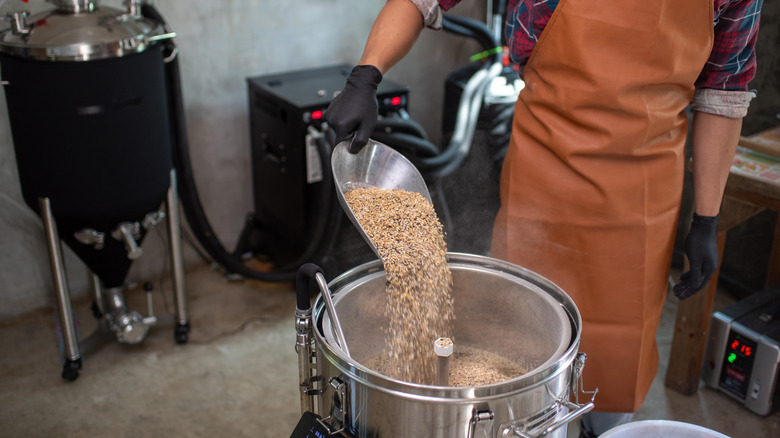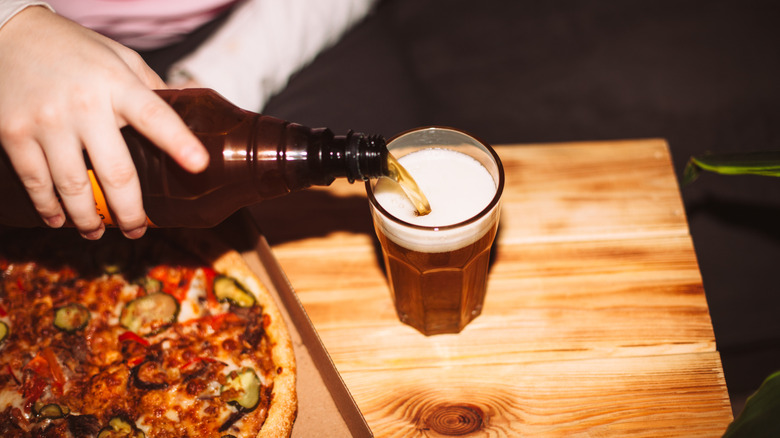Here's How Long It Takes To Brew Your Own Beer (Roughly)
Although the craft beer movement is slowing down, there is still a wealth of bottle options on the shelves. Unique breweries deliver innovative bottles to drinkers, while countless other operations craft rock-solid lagers and IPAs. Perhaps it's due to such oversaturation that people aren't homebrewing like they used to.
After all, preparing beer at home takes equipment, expertise, and most crucially, patience. While grabbing a 4-pack from the store only requires a few minutes, you're looking at a bare minimum of five weeks for homebrewing beer. Divided into several stages, you'll need to allot time for two rounds of fermentation. Then, followed by around two weeks of bottle conditioning for most ales (or even months for lagers), the brew is done.
There's a lot of deviation in duration depending on the style, but across the board, brewing your own beer is not a quick process. And while the initial brewing step initially requires the most time, the further stages do require some continued oversight, too. With busy schedules and the varied beer options, it's understandable that fewer individuals tackle the process. Yet, there is an admirable curiosity — and pride — in taking on the brewing independently.
Brewing beer takes over a month, depending on style and recipe
There are lots of potential mistakes that can ruin homemade beer, with attempts to speed up the process a common pitfall. Depending on whether you use ale or lager yeast, you'll need to account for at least two weeks of fermentation. Beers of the lager style take longer, since they spend an additional two weeks or more at low temperatures, which contributes to their clean taste.
Brewers can experiment with the temperature, type of yeast, and resultant alcohol, which is why the fermentation step might fall within a varied timeline. Light styles like Kölsch or cream ale are the fastest, requiring around two to three weeks total for fermentation. A particularly boozy beer also made with an ale yeast — say an imperial stout — could take over a year. And when you employ a lager yeast, the fermentation time elongates, extending the crafting of even a low-alcohol beer by weeks or months.
Next, it's critical to consider the bottle-conditioning time. Once two rounds of fermentation are complete, beer can finally go into its final vessel. It can be so tempting to crack one open and see the result, but you'll need at least two weeks for carbonation to occur and flavors to meld. Some homebrewing experts even recommend waiting a month to guarantee a bubbly delight. So even with fast-fermenting styles, you'll need to wait at least a couple of weeks for the finished product.

